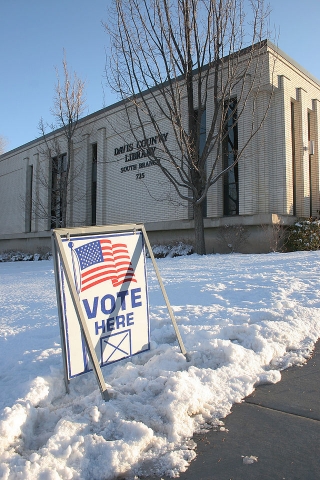Who Are All Those People at the Polling Places?

by: Joshua A. Douglas, Associate Professor of Law
Many people going to the polls today will encounter both poll workers and “challengers” at the polls. Who are these challengers? And are they allowed to be there?
Under Kentucky law, each political party may appoint up to two “challengers” at each precinct. The parties must certify the list of challengers ahead of time, and they all must be registered voters in the county.
Challengers may, well, challenge the eligibility of any individual to vote, on the grounds that the voter is not registered, is not a resident of the precinct, is a convicted felon, or is not who the person purports to be. They provide a check on the election officials’ administration of the voting process.
But beyond challenging the eligibility of voters, the parties use challengers for more political reasons as well. Anecdotal reports suggest that the challengers are checking off each voter on their own lists of registered voters when the voter arrives at the polling place. This way, the parties know who has voted—and who has not. Throughout the day and into the early evening, the parties can target their get-out-the-vote efforts on those supporters who they know have not yet voted, instead of wasting their time calling voters who have already showed up at the polls.
Some may think that “challengers” are at the polls are there to intimidate voters. And there is evidence that, sometimes, parties have put challengers in precincts that lean toward the other side so as to challenge the eligibility of the other party’s voters. There have even been terrible reports previous years of political parties targeting minority communities with challengers.
But Kentucky law prohibits challengers from voter intimidation. If they do their jobs, they should not be interfering with the voting process. And they help the parties with their voter mobilization efforts in the process.
